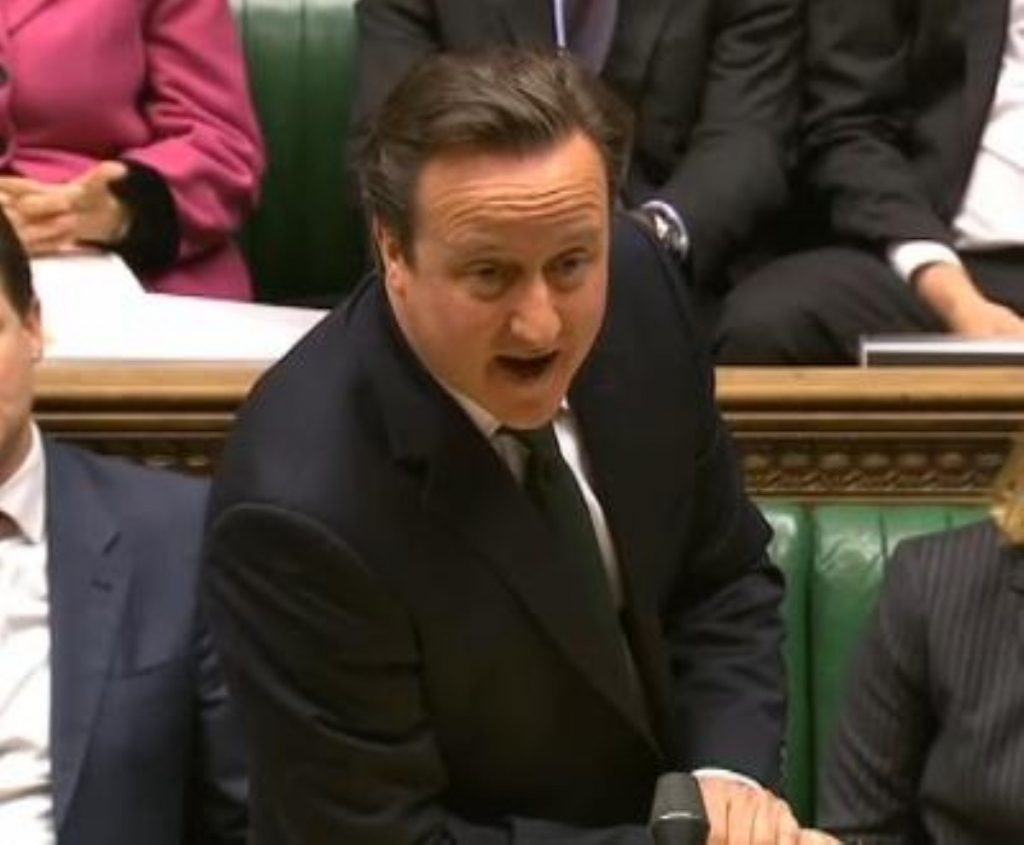PMQs verdict: David Cameron’s arrogance blinds him to danger of targeting cancer patients
David Cameron is usually a skilled political operator. He remains prime minister largely because he has been able to spot where the majority of the British public are better than his political opponents.
But he has blind spots. And the longer Cameron remains in a dominant position in UK politics, the bigger those blind spots have become.
A good example of this came at prime minister's questions today when he appeared determined to defend what, it should have been obvious, was entirely indefensible.
Jeremy Corbyn raised the case of a man whose friend was suffering from cancer and faced big cuts to the support provided to her.


He was immediately met by jeers from Tory MPs, many of whom appear to find the idea of listening to the views of members of the public to be inherently hilarious.
"Ok it's very funny for many people opposite but it's not funny for Martin," he told Tory MPs.
This alone should have prompted Cameron to change his tone. It did not.
Corbyn called on the prime minister to reverse his government's plans for big cuts to the employment support allowance for people suffering with cancer.
Under the plans, people either recovering from cancer or in the early stages of the disease would lose up to £1,500 a year.
Public attitudes to welfare cuts are complex. While most people accept the general need to reduce the welfare bill, specific cuts are often hugely unpopular. As long as the government can successfully frame a cut as attacking 'scroungers' then it will usually receive overwhelming support. However, the second those cuts appear to be targeting more deserving claimants that support evaporates.
And there can be no more obviously deserving a claimant than people suffering from cancer. Short of announcing plans to shoot puppies and drown school children, it is hard to imagine a more potentially unpopular proposal than the one proposed by Cameron's government.
Today Corbyn repeatedly pleaded with Cameron to abandon the proposals.
"The prime minister did not answer my question on whether he will proceed with the cut to 3200 people with cancer," Corbyn told the House.
"The prime minister used to say that those with the broadest shoulders should bear the greater load. Can it be right that cancer patients and those with disabilities on £102 per week are really those with the broadest shoulders who should bear this cut…"
"Please prime minister. Think again."
The cuts are clearly a disaster waiting to happen for the government. They are opposed by all the leading cancer charities and there is a growing rebellion against them on the Tory benches. Were Cameron in a more politically vulnerable position, he may have taken the opportunity to announce that the plans would be abandoned, or at the very least to announce plans to lessen the impact on those suffering from cancer. Had he done so, he would have appeared compassionate and thoughtful. It may have been a retreat, but the public would have welcomed it as the right thing to do.
Instead, like a tennis player with only one decent shot to his name, Cameron saw this as yet another opportunity to attack Labour for being soft on welfare.
"It's quite clear what Labour's policy is," he said. "Cut the NHS in Wales, put up taxes in Scotland, to pay for more welfare. That's not what this country needs."
By pushing ahead repeatedly with this tactic, Cameron appeared both tin-eared and heartless, while Corbyn was left as the only person looking out for those people suffering from some of the most debilitating and soul-destroying diseases it is possible to face.
Power inevitably breeds arrogance and the longer Cameron stays in power, the more that arrogance becomes clear. But while the Conservatives may currently be in a dominant position, that dominance is not overwhelming.
And if the public continue to see the Conservatives as determined to cut benefits for cancer patients, while giving generous tax deals to multinational companies, then Cameron may soon find that public support for him is not anywhere near as solid as he appears to believe it is.









